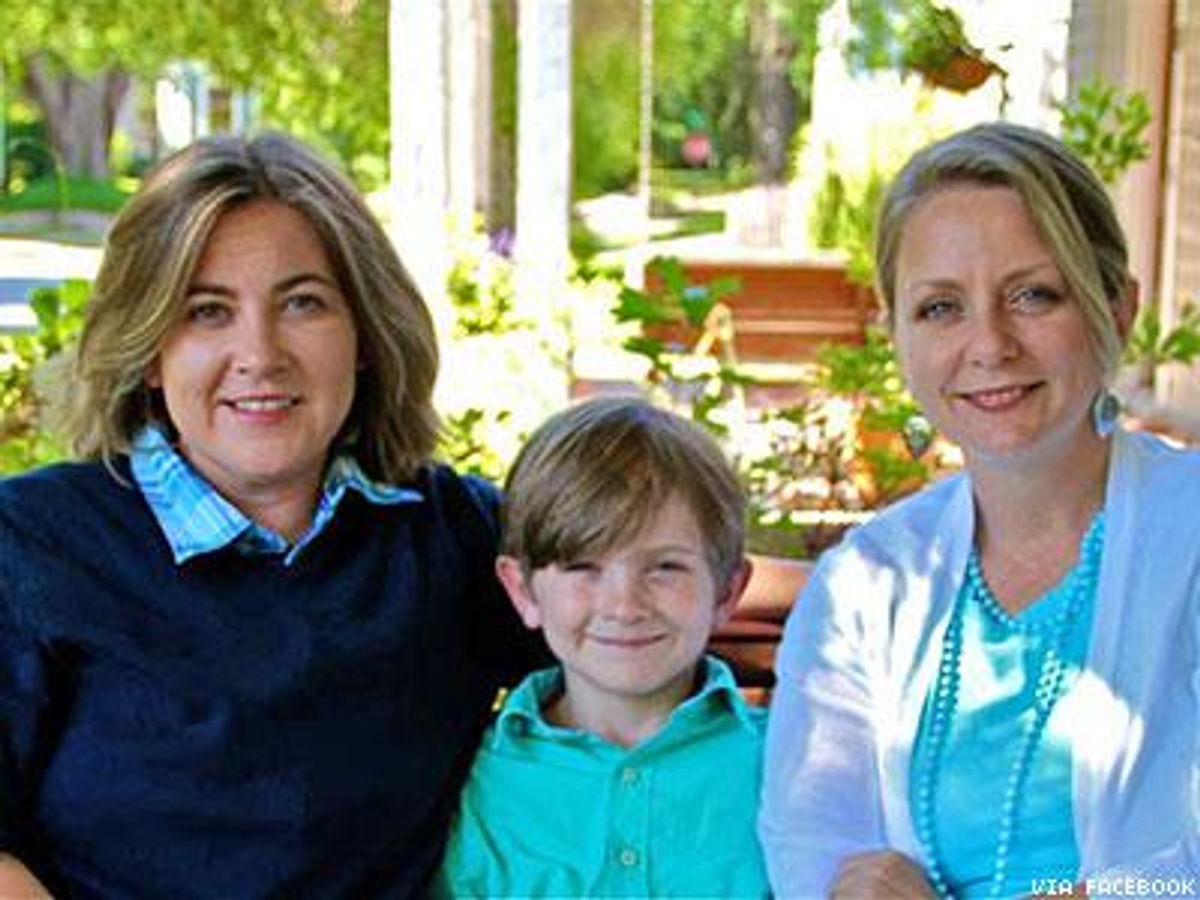A federal judge in Alabama, appointed by George W. Bush, became the latest to issue a strongly worded decision in favor of marriage equality in a ruling handed down Friday, reports MetroWeekly.
U.S. District Court Judge Callie V.S. Granade's ruling was not accompanied by a stay, meaning same-sex couples will be able to apply for marriage licenses in Alabama as soon as county clerks' offices open, unless the state files and is granted an emergency request for a stay, according to the Human Rights Campaign. Marriage licenses in Alabama are issued by the County Health Department, most of which are open weekdays only. Find operating hours for each of Alabama's 67 County Health Departments here.
The case, known as Searcy v. Strange, was filed on behalf of Cari Searcy and Kimberly McKeand, a lesbian couple together for more than 14 years, who married in California in 2008, but have lived in Alabama since 2011, according to Montgomery TV station WSFA. In order for Searcy to legally adopt her wife's 8-year-old son, the state must recognize the two women's California marriage.
The lawsuit challenged Alabama's 2006 Sanctity of Marriage Amendment, which prohibited the state from recognizing as valid any marriage that was not made up of one man and one woman.
Although the case directly addressed the portion of Alabama law prohibiting recognition of out-of-state same-sex marriages, the judge's ruling strikes down the law in totality, finding that it violates the Equal Protection and Due Process clauses of the U.S. Constitution, notes MetroWeekly.
Granade's ruling is the 59th decision from a state or federal court to arrive at such a conclusion since the U.S. Supreme Court struck down the so-called Defense of Marriage Act in June 2013.
In a rather concise 10-page ruling, Granade flat-out rejected the arguments in defense of the antigay amendment, passed by more than 81 percent of Alabama voters in 2006.
Like many other officials defending marriage bans in states around the country, Alabama Attorney General Luther Strange tried to claim the state's law encouraged "responsible procreation," saying that the legal recognition offered to opposite-sex marriages would encourage mothers and fathers to stay together.
Granade wrote that the state presented "no evidence" that the laws have any impact "on the choices of couples to have or raise children," and that those laws are in fact "an irrational way of promoting biological relationships in Alabama."
"If anything, Alabama's prohibition of same-sex marriage detracts from its goal of promoting optimal environments for children," Granade wrote in her ruling. "Those children currently being raised by same-sex parents in Alabama are just as worthy of protection and recognition by the State as are the children being raised by opposite-sex parents."
That reasoning is strikingly similar to language written by Supreme Court Justice Anthony Kennedy in the court's decision in Windsor v. U.S., which struck down DOMA. Indeed, Granade's ruling frequently cites Windsor, as have the vast majority of decisions finding in favor of marriage equality in states throughout the country.
"Alabama's Sanctity laws harms the children of same-sex couples for the same reasons that the Supreme Court found that the Defense of Marriage Act harmed the children of same-sex couples," Granade's ruling reads. The judge goes on to note the financial harm imposed on families headed by same-sex couples who are denied the right to marry, but then closes with a powerful indictment of the antigay legacy that such laws can leave for generations.
"These laws further injures those children of all couples who are themselves gay or lesbian, and who will grow up knowing that Alabama does not believe they are as capable of creating a family as their heterosexual friends," the ruling concludes.
If weddings begin imminently, Alabama will become the 37th U.S. state (plus the District of Columbia) to allow same-sex couples to marry.
This story is developing. Check back for more information.



















































































